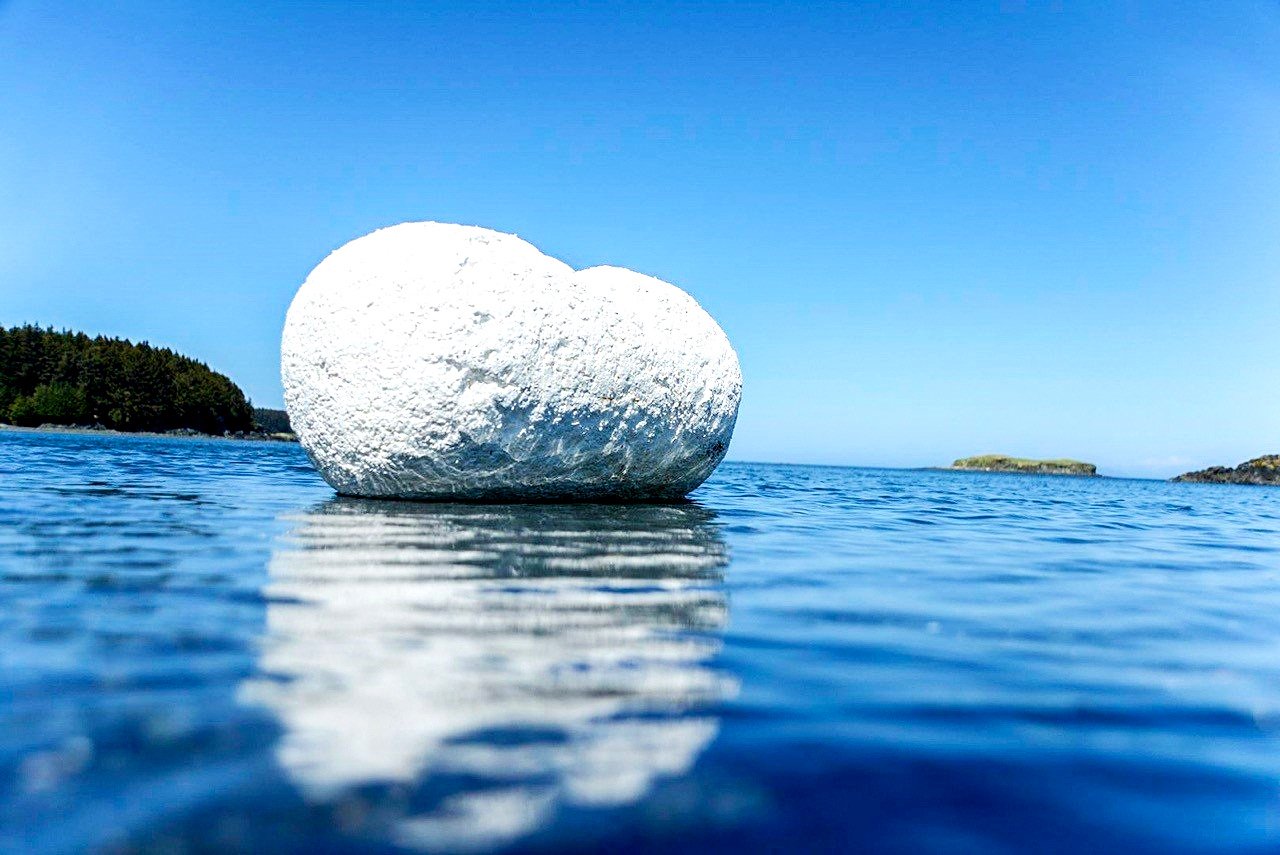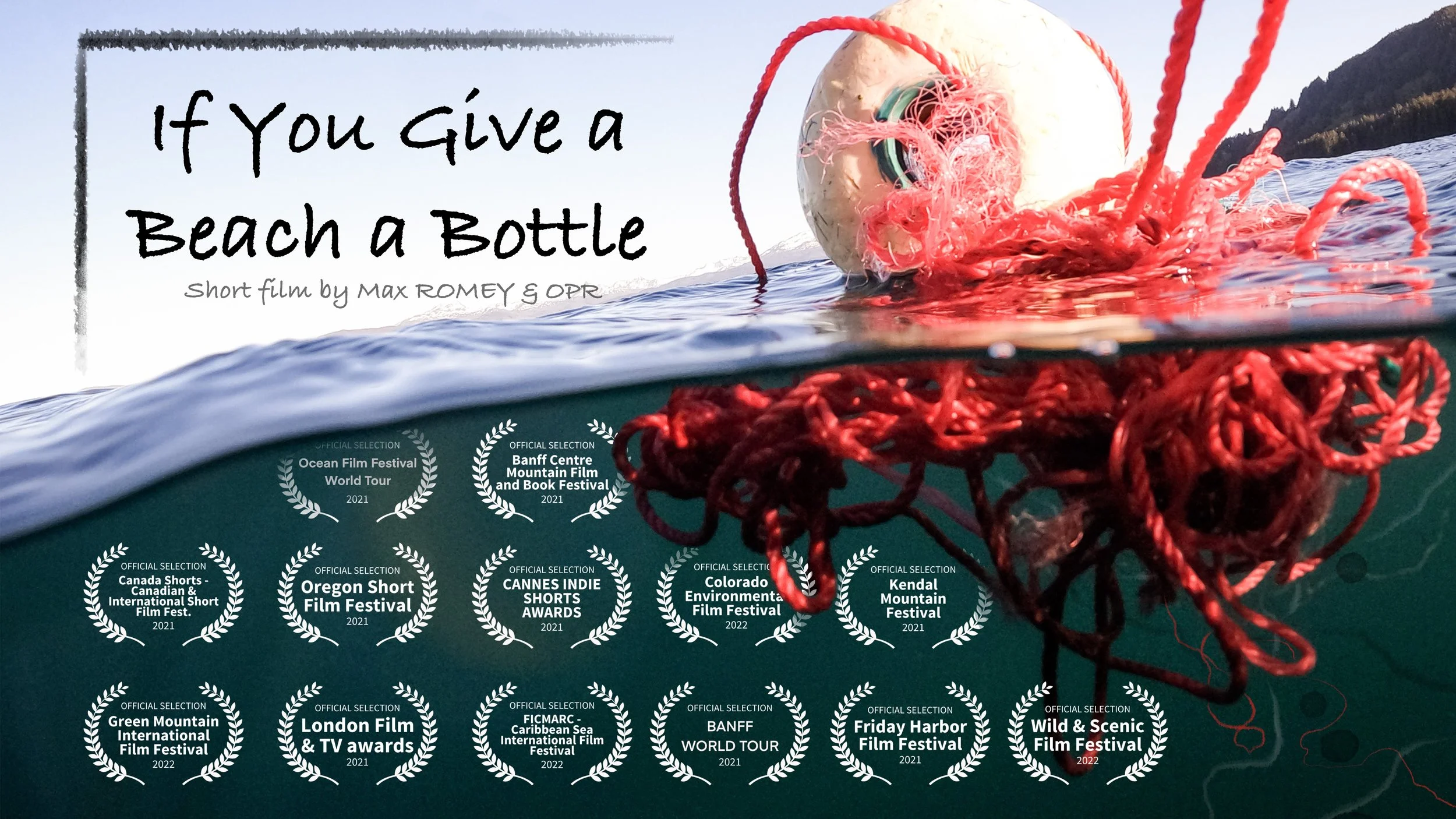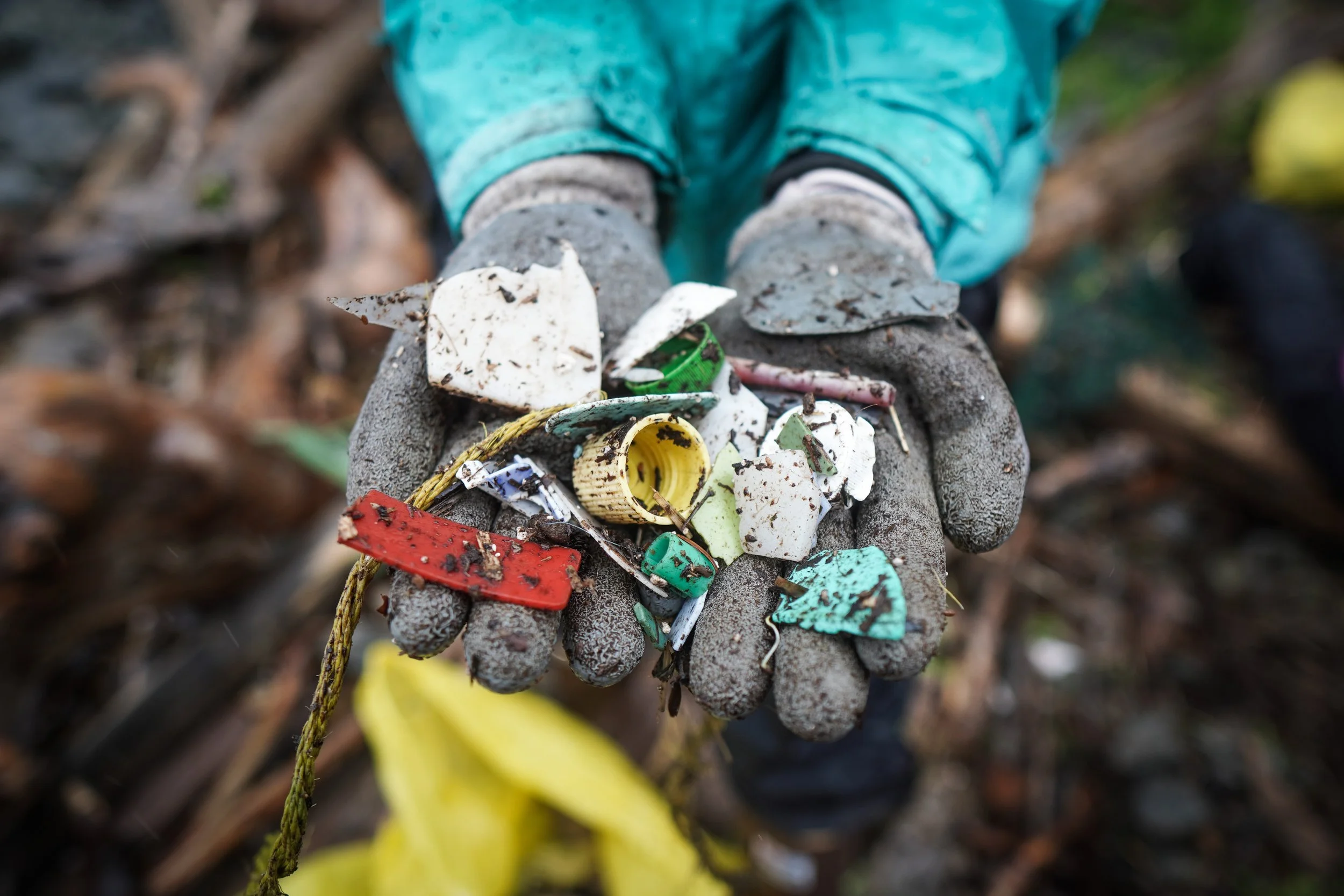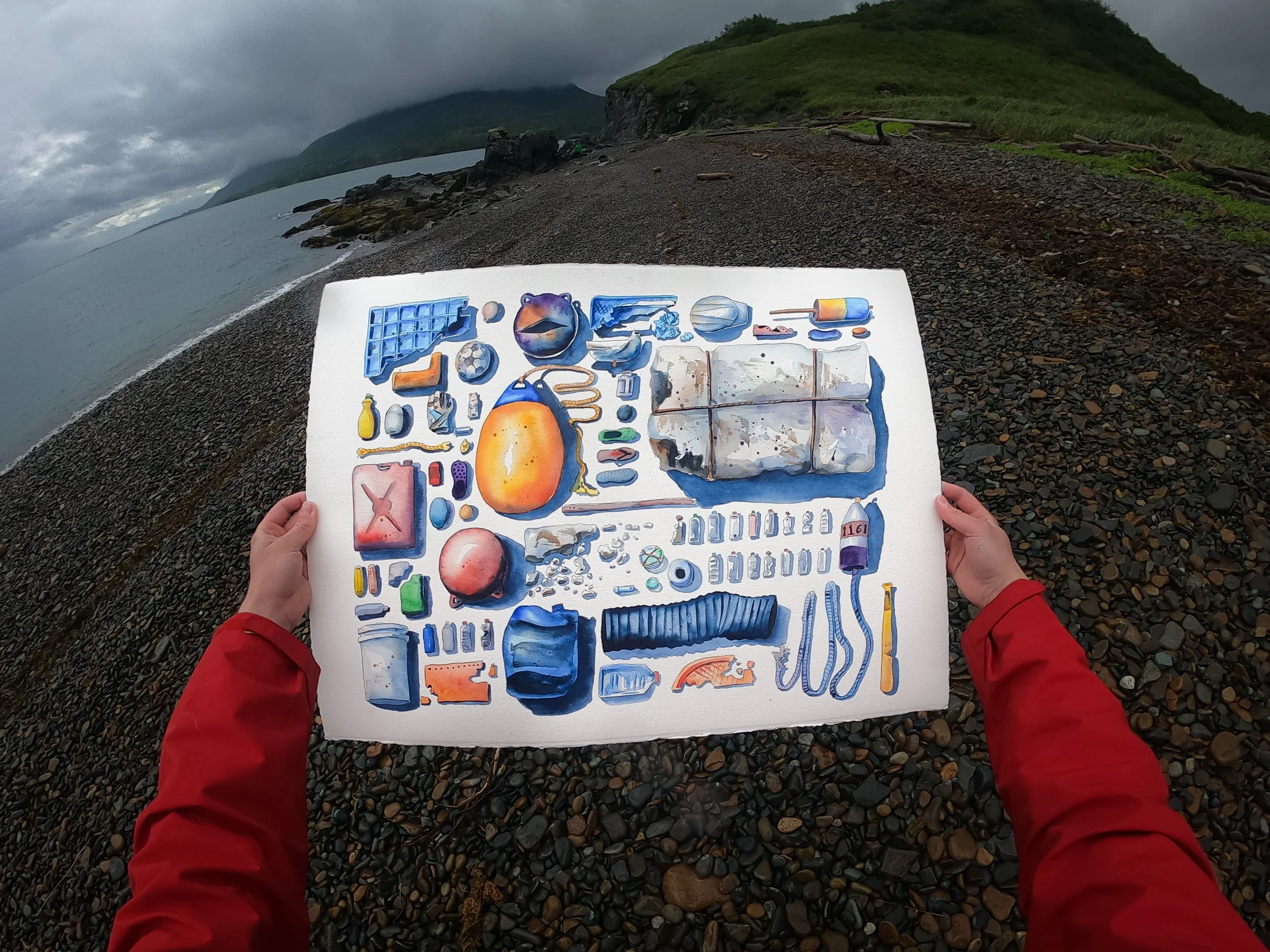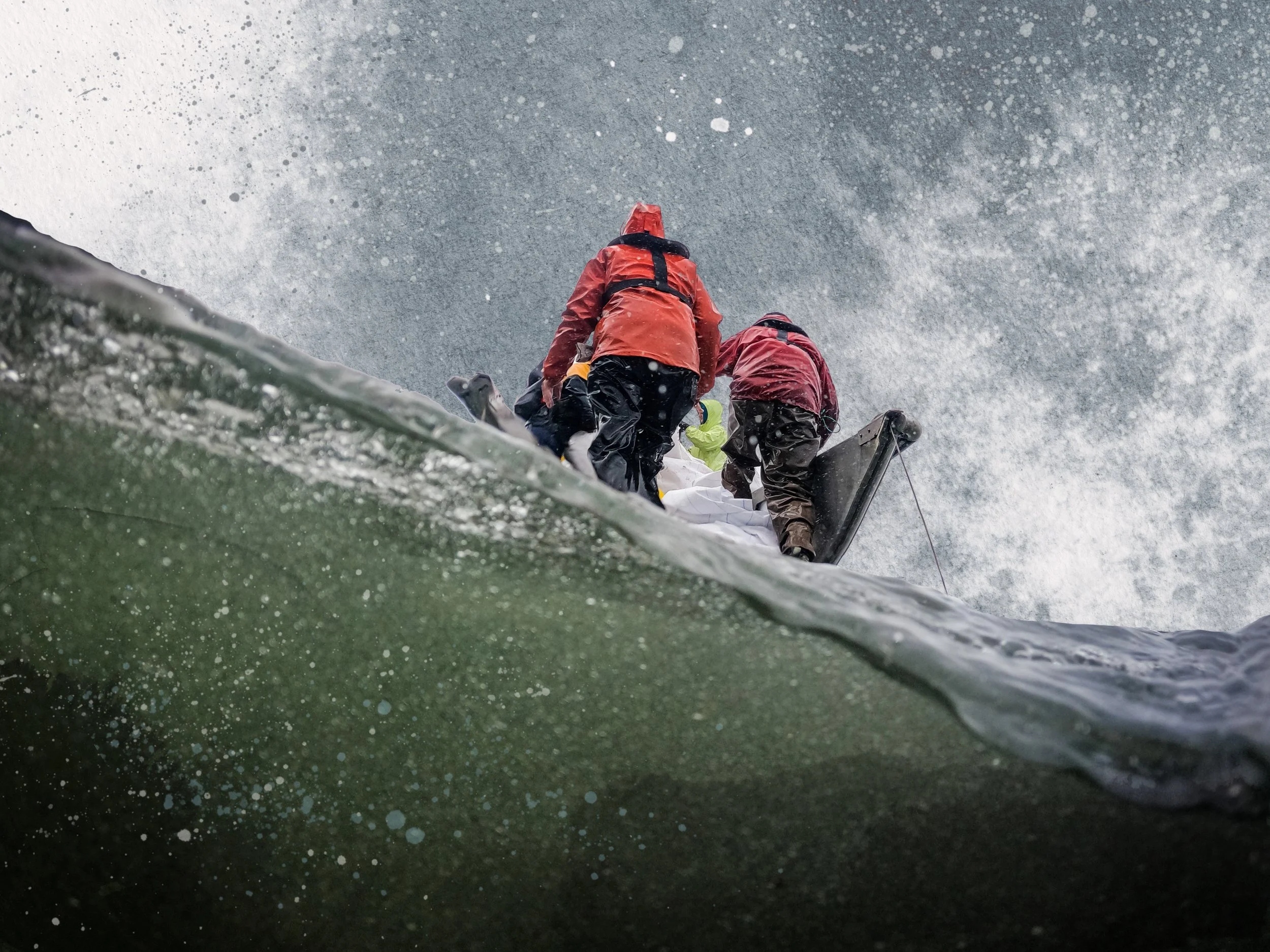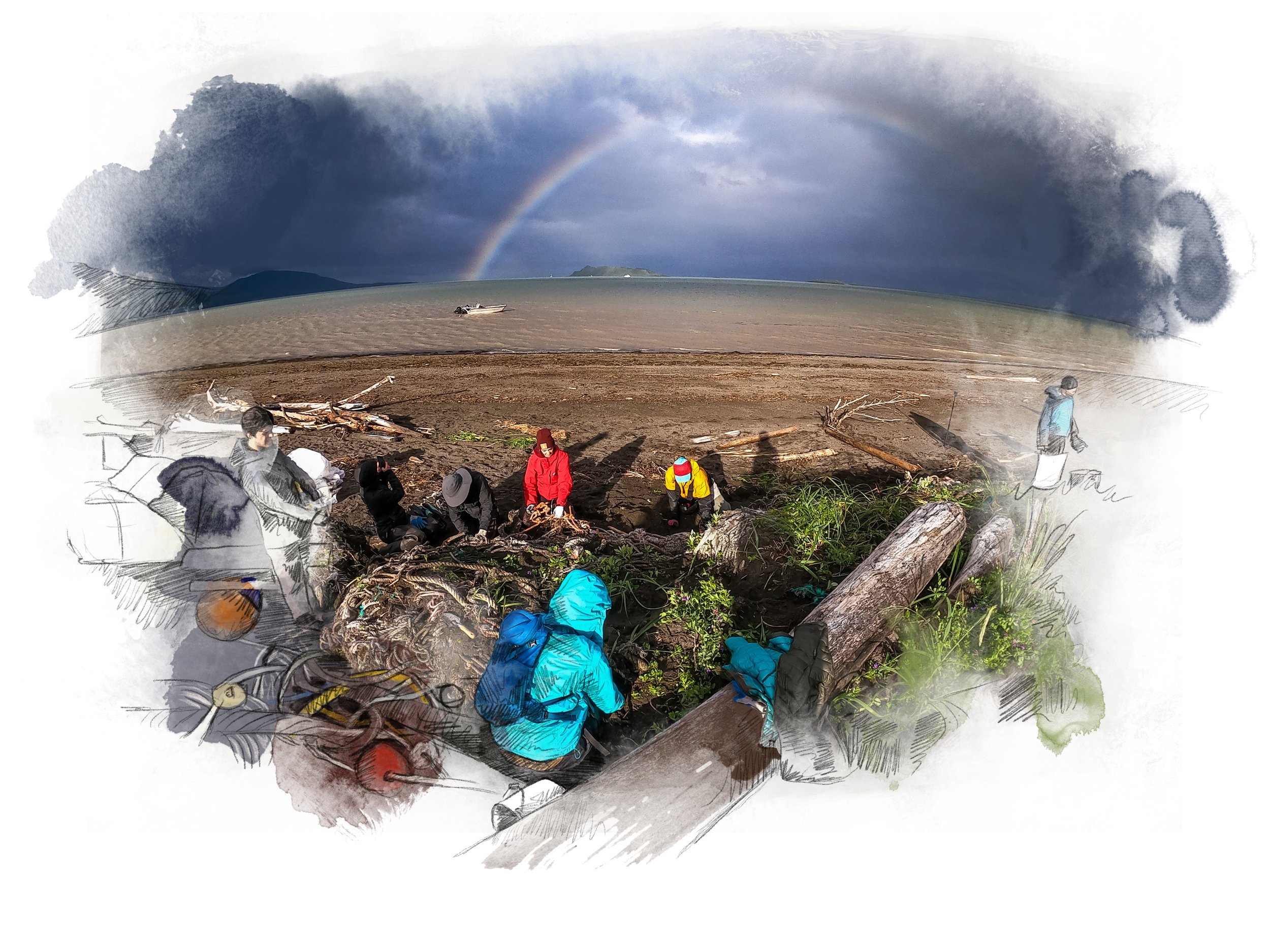
OUR STORY
Ocean Plastics, Defined
Ocean Plastics /ˈōSHən plastiks / are plastics which, directly or indirectly, intentionally or unintentionally, are disposed of or abandoned into the marine environment (NOAA)
Threats of Ocean Plastics
-
Marine life can be caught and injured, or potentially killed in certain types of debris. Lost fishing nets are especially dangerous. In fact they are often called “ghost” nets because they continue to fish even though they are no longer under the control of a fisher. Ghost nets can trap or wrap around animals, entangling them. Plastic debris with loops can also get hooked on wildlife – think packing straps, six-pack rings, handles of plastic bags, etc.
-
Animals may mistakenly eat plastic and other debris. We know that this can be harmful to the health of fish, seabirds, and other marine animals. These items can take up room in their stomachs, making the animals feel full and stopping them from eating real food.
Harmless Enough?
The discovery of a child’s toy launched a career in ocean conservation.
OPR co-founder Andy Schroeder discovered one of the “Floatees” bathtub toys while guiding a kayaking trip in Kodiak in his twenties.
Two years later, an article in the Atlantic, followed by a book on the subject drew him in. As it turned out, the toy frog had been lost from a container spill near Hawaii, and had spent twelve years in the marine environment before washing up on Afognak island.
Moved by the experience, Andy launched a campaign to collect marine debris in 2007 that continues to this day.
The Problem Solver
He built a reputation in the recycling industry for understanding complex waste streams. Then he met his match.
OPR co-founder Scott Farling met Andy in 2018, when both were invited by a mutual friend to accompany her on a humpback whale survey in Alaska.
Along the way, the conversation turned to marine debris, and the challenges he’d encountered in finding a way to recycle it.
Almost immediately, Farling became obsessed with finding new pathways for recycling and recovery in the mother of all plastic waste streams.
As a college student, Max Romey was silenced by what he saw. Not anymore.
Max Romey was hired by Andy Schroeder to join a marine debris crew in 2015, to clean up wreckage from the Tohoku tsunami.
An aspiring filmmaker at the time, Max and friends showed up ready to film a documentary. It didn’t turn out that way.
Most of the team were shocked by their experience. Though the cleanup expedition was success, the complicated relationship between humans and plastic derailed the story. At least at the time.
Now, as OPR’s chief storyteller, Max has found his voice.
Finding Your Voice
OPR
Est. 2018
A Picture worth 1,000 Bottles.
Inspired by a picture book, Max Romey headed out with us to a remote beach on Alaska's coastline in search of marine debris, but we found a different story all together.


